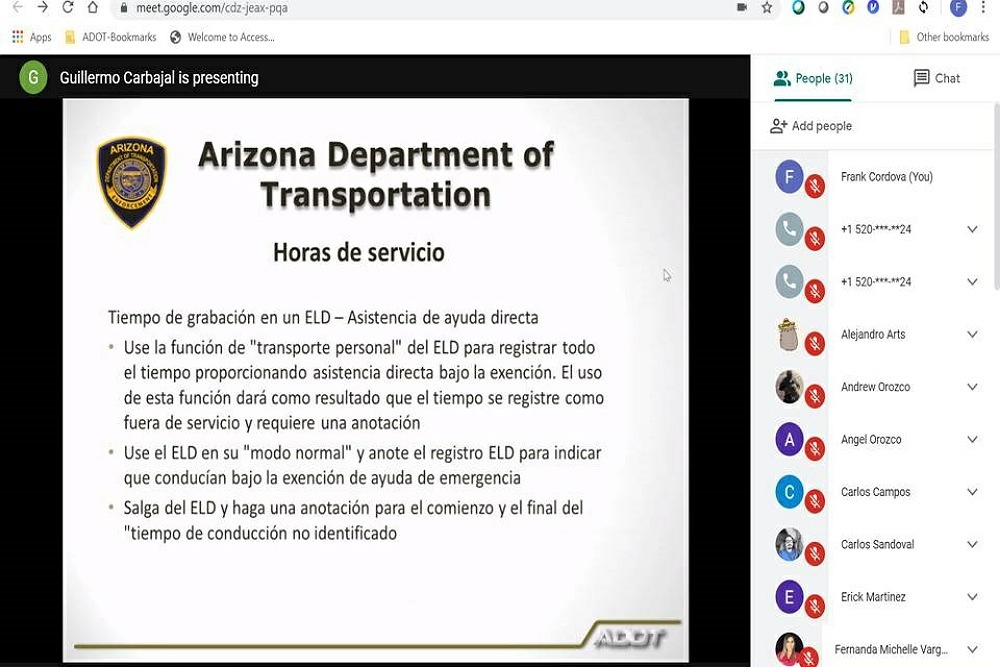Arizona Department of Transportation issued the following announcement on April 27.
An Arizona Department of Transportation program that helps truck drivers in Mexico better understand and prepare for safety inspections at the border is using technology to provide virtual training during the current public health situation.
The goal of this training offered by ADOT’s Border Liaison Unit is reducing commercial vehicle wait times at the international border by cutting down on safety problems and other issues that truck drivers must address before leaving commercial ports of entry. That helps make Arizona’s ports more appealing places for trucks to enter the U.S.
Part of ADOT’s Enforcement and Compliance Division, which operates commercial ports of entry, the Border Liaison Unit offered its first training by webinar recently for 30 trucking companies from the Mexican states of Sonora and Baja California. More sessions are planned.
“The webinar was a huge success,” said Officer Frank Cordova of the Border Liaison Unit. “We’re looking to make webinar-based workshops a staple of the training we provide, as it allows us to reach even further into Mexico and the U.S. to continue educating the commercial industry.”
The Border Liaison Unit saw an increase in inquiries from Mexican truckers regarding current emergency restrictions and exemptions for commercial vehicles due to COVID-19. Future sessions will cover safety training previously conducted in person such as electronic log books and critical items officers look for in inspections.
That assistance complements International Border Inspection Qualification training that ADOT has offered in person since 2016. Drivers certified through that program are able to share questions and pictures of their vehicles via WhatsApp and communicate with ADOT officers about potential safety issues before driving to the border.
Meeting this demand with a webinar helps ADOT officers and commercial truck drivers observe social distancing. Longer-term, offering virtual instruction reduces travel expenses.
“I’m very proud of this unit for finding ways to continue to work with our local and international partners in the trucking industry,” Cordova said. “Even a pandemic won’t keep us from doing the job we’re passionate about.”
Original source can be found here.

